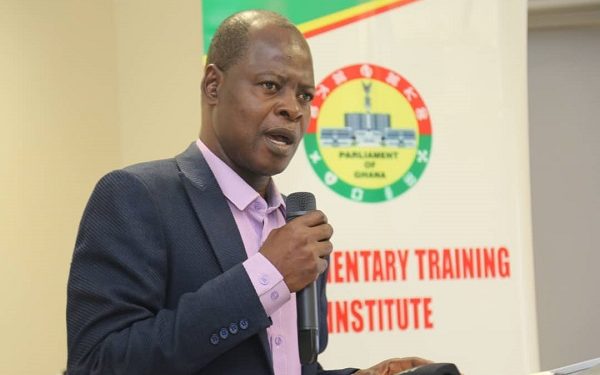Dr. Steve Manteaw, an extractive industry reform expert and consultant, blamed the collapse of the Agyapa Gold Royalties deal on the public’s perception that the government had misled them.
Speaking at a forum on the theme “Extractive Sector Governance: Examining Political economy factors for promoting transparency, participation and accountability” organized by Star Ghana, Dr Manteaw, said “Ghanaians bought into the promise of a comprehensive mineral revenue management law” as promised in the NPP’s 2016 election campaign “only to be presented with a Mineral Income Investment Fund Act, without regard to the social contract”.
The government of Ghana had suggested selling about 76 percent of the country’s potential gold receipts to a special corporate fund based in Jersey, a British jurisdiction noted for its tax haven status.
In exchange for US$500 million, Ghana would have received 51 percent of the Jersey-based business, with the remaining 49 percent listed on the London Stock Exchange.
Read Also: ECG employees go on a two-hour sit-in strike today
According to Finance Minister Ken Ofori-Atta, the money would have been spent on “infrastructure, health, and education.”
However, Dr. Steve Manteaw, a former director of the World Bank Extractive Industries Advisory Group, believes the deal revealed an attempt by “power players and interest holders (in government) to gain private gains from the sale.”
Martin Amidu, the then-Special Prosecutor, noted Dr. Manteaw’s concerns in his Corruption Risk and Anti-Corruption Appraisal of the Agyapa Gold Royalties Deal.
Dr. Manteaw observed that “the Agyapa transaction posed crucial concerns about the effectiveness of the checks and balances incorporated into Ghana’s governance architecture,” amid questions raised primarily by the opposition National Democratic Congress and many civil society organizations.
The Agyapa deal, according to Dr. Manteaw, “revealed the inadequate monitoring structures in Ghana’s public financial management structure and Parliament’s near helplessness in the exercise of its oversight mandate.”
Dr. Manteaw was speaking at a session examining the political and economic forces that have stymied efforts in Ghana to innovate the management of mineral royalties.
According to the findings, collaboration between local CSOs and their foreign counterparts, as well as relentless coverage of both local and international media, helped “bring international public opinion” to bear on the perceived improprieties in the agreement that led to its botching.
SOURCE: ATLFMONLINE

























